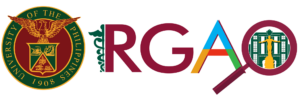With the aim of complementing the human resources and institution needs and requirements of the industry, energy, and emerging technology research and development sectors, making the opportunity available, PCIEERD implements the Capability Development Program (CapDev) with the following components:
a. The Institution Development Program (IDP) aims to provide funding support for establishing or upgrading the research laboratories and facilities of academic and research institutions within the PCIEERD sectoral priority areas or the Harmonized National R&D Agenda (HNRDA) where there is inadequacy of research expertise and/or facilities. The IDP shall include upgrading or setting up of research laboratories, purchase of laboratory equipment (including highly specialized software)/facilities, and small research grants aimed at developing research capabilities. The renovation of buildings/facilities or space would be the counterpart of the institution. Funds are allocated for four (4) projects/centers with funding support amounting to P 20,000,000.00 with a maximum grant of P 5M per project.
b. The Regional Research Institution (RRI) aims to develop the research capabilities of the PCIEERD Regional Consortium member institutions and eventually increase the available Researchers, Scientists, and Engineers (RSEs) in the region. This funding opportunity encourages new researchers and/or new institutions from Higher Education Institutes (HEIs), government Research and Development Institutes (RDIs), non profit S&T networks and organizations, the private sector, and other proponents seeking funding for their R&D initiatives. There are ten (10) slots available for this program amounting to P 10,000,000 with a maximum grant of P 1M per project.
c. The Good Governance through Data Science and Decision Support Systems (GODDESS) aims to provide assistance for the development of appropriate systems and technologies to address the specific needs of the National Government Agencies (NGA), Local Government Units (LGU), academic or research institutions and Micro, Small and Medium Enterprises (MSMEs) and enable them to adapt data driven governance and evidence based management. There are ten (10) slots available on this program amounting to P 10,000,000.00 with a maximum grant of P 1M per project.
d. Expert Intervention for Scientific Engagement (ExpertISE) for Regional Consortia
This is open to researchers of the PCIEERD Regional Consortia. The funds is intended for an engagement with an industry partner in their regions for the identification of potential niche or project scoping, industry gaps and challenges, and the development of a project that addresses the identified gaps and challenges that can be submitted to PCIEERD or DOST for funding. All institution members of the PCIEERD Regional 16 Consortia can submit proposals. There are ten (10) slots for funding this year under this program amounting to P 5,000,000 with a maximum grant of P 500,000.00 per engagement.
e. Blockchain Program aims to provide assistance for the development of appropriate blockchain applications or systems to address specific needs of the DOST and its attached agencies which includes the DOST Central Office, R&D Institutes (ASTI, FNRI, FPRDI, ITDI, MIRDC, PTRI), DOST Councils (PCAARRD, PCHRD, PCIEERD), S&T Service Institutes (PHIVOLCS, PSHS, SEI, STII, TAPI), Collegial and Scientific Bodies (NRCP), and the Regional Offices (I, II, IV A, IV B, V, VI, VII, IX, XI, XII, XIII, CAR, NCR). This will also enable them to provide solutions for the improvement of their services and processes. There are ten (10) slots available on this program amounting to P 20,000,000.00 with a maximum grant of P 2M per project.
Opportunity Summary
The Full-Blown Proposal for RRI, GODDESS, and Blockchain Program should fall under the category of Research and Development Project while proposals for IDP and ExpertISE should fall under Non-Research and Development Project.
This funding opportunity encourages the a) development of research capabilities of the academic and research institutions through the development and/or upgrading of its research laboratories and facilities; (b) graduate students, researchers, faculty, personnel and practitioners in the data science and analytics field for the development of systems and technologies to aid in decision making process; c) new researchers and/or new institutions from PCIEERD regional consortia institution members for the development of research projects to address the needs and priorities of the region; and (d) researchers, practitioners in the blockchain technology for the development of appropriate systems
The Council shall provide funding support for the following:
a. Institution Development Program (IDP) for establishment of research facilities/laboratories
b. Regional Research Institution (RRI) for new researchers and new institution members of the consortia
c. Good Governance through Data Science and Decision Support Systems (GODDESS) for LGU, NGA, academic institutions and MSMEs
d. Experts Intervention for Scientific Engagement for Regional Consortia (ExperTISE) in collaboration with the existing industries based on priorities of the region which is within the PCIEERD priority sectors.
e. Blockchain Program for DOST, its attached agencies and regional offices.
Closing date: February 22, 2023 5:00 P.M.


